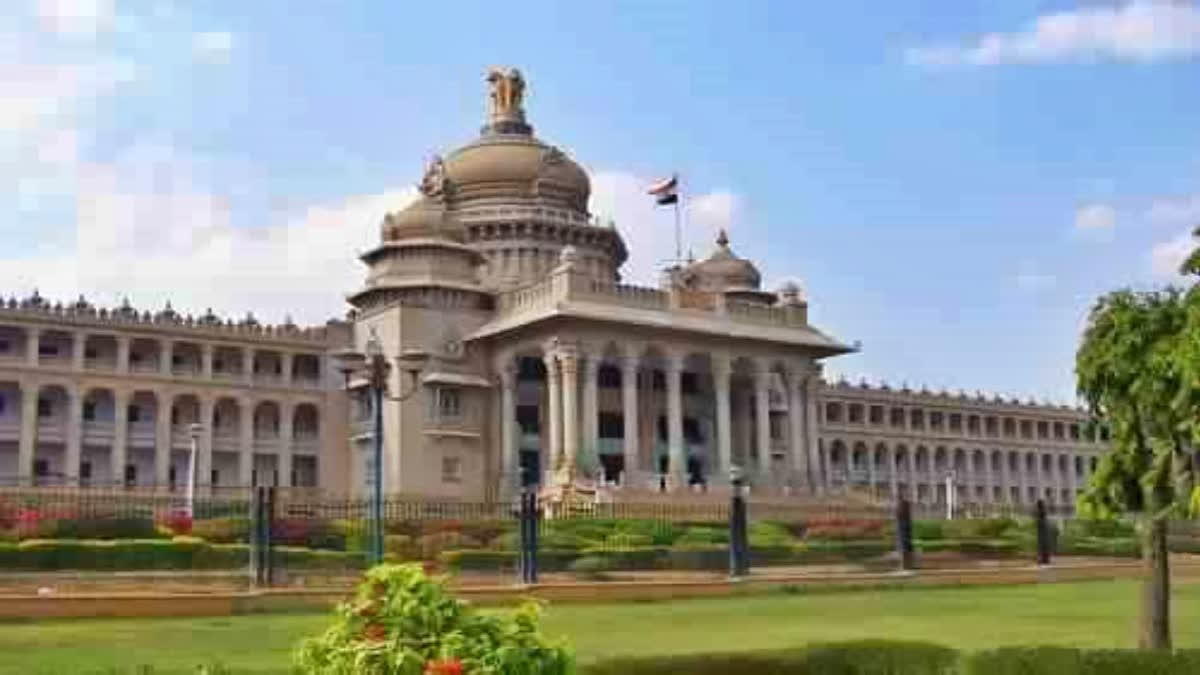Bengaluru: A number of anomalies in the recruitment process in sub-inspector (PSI) exams, Karnataka Examinations Authority and other departments have come to light. No matter how strict measures are taken to prevent irregularities in recruitment examinations, irregularities continue to happen.
Honest candidates are being deprived of opportunities due to such irregularities, sources said. Illegality has also come to light in the recent examination conducted by KEA for FDA recruitment. This has put the Congress government, which had earlier attacked the BJP government regarding the illegality of the previous recruitment examination, in a quandary.
Taking this seriously, the Congress government has now proposed to implement a strict law to prevent irregularities in the recruitment examination. In this regard, the Karnataka Public Examination (Measures for Prevention of Corruption and Unfair Practices in Recruitment) Bill 2023 was approved in the recent cabinet meeting.
The government has decided to introduce the bill in the Legislature session to be held in Belagavi. Department of Home Administration has formulated the Karnataka Public Examination Bill-2023. Under this law, a rule has been formulated to give severe punishment to the offenders. The provisions of this bill include strict rules on punishment and impunity for those who commit crimes.
Strict laws have been framed in the Karnataka Public Examination Bill-2023. In the bill, a provision has been added to impose severe prison sentences and heavy fines on the offenders. If the examinee is found to be involved in an illegal act, a maximum imprisonment of five years has been framed. Added to that is the factor of imposing huge fines. As per the rule, there is a provision to impose a fine of not less than Rs 10 lakhs. Failure to pay the fine will result in nine months of imprisonment.
The law added that if a third party conspires or participates in the illegality of the recruitment examination, he will be imprisoned for a term not less than eight years and a maximum of 12 years. In addition, he will be fined not less than Rs 15 lakh and not less than Rs 10 crore. If you fail to pay the fine, you will be imprisoned for up to two years.
In this bill, the rule of confiscation of property of the culprit is also included. The power is given to confiscate immovable or movable property acquired illegally. The property of the offender can be confiscated with the prior approval of the state government. If in reality, it is difficult to confiscate the property, the investigating officer is empowered to confiscate it and issue an order not to transfer the property.
The investigating officer shall inform the appointed court within 48 hours of the confiscation of the property. The court will have the power to vacate or confirm the confiscation of property. If the accused is found guilty, the court can award the sentence and place the immovable and movable property under the control of the state government.
An offence under the proposed Act will become a non-bailable offence. Irregularity in recruitment examination will be treated as a case of serious nature. Also, it will be treated as a non-combined case. This means that in such cases, there is no possibility of compromise or withdrawal of the complaint.
An officer below the rank of Additional Superintendent of Police shall investigate the case. The case will be heard in a separate court.
According to this bill, if an examinee is found guilty of irregularities in the recruitment examination, he will be debarred from any recruitment examination for the next two years. Any person not related to the recruitment test will be prohibited from entering the examination centre premises. An examination cannot be conducted anywhere other than the designated examination centre.
Under this Act, if any administrative body or organisation comes to the notice of any illegal activity, or if they are involved in the illegality, the director, secretary, partner, or manager of such organisations will also be severely punished as a rule. The bill also includes a provision to recover the total cost of the examination from the bodies and institutes and impose a life ban for the same.



